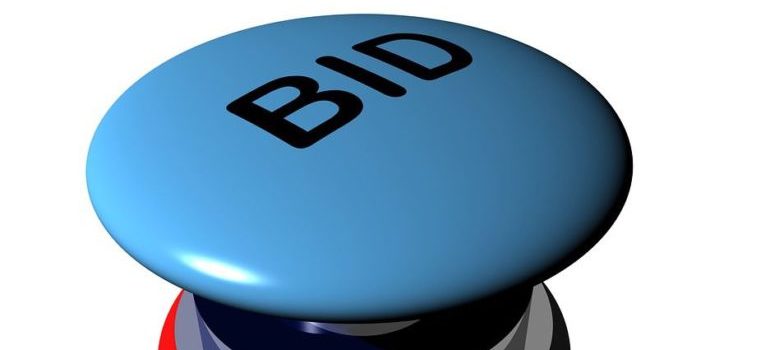The market we work in and attempt to dominate day after the day is very competitive. And with the never-ending cycle of innovations and software development, it holds the promise of becoming even more so. So, what is a small business to do to ensure growth and establish a name for itself? Well, luckily, there are now countless ways to distinguish your company from a particular market and win leads. It’s just a matter of finding the right channels through which to operate. Sometimes, this will lead to expert SEO services. Other times, your business plan might build around the software you implement. And then there are those that find PPC as a useful tool to get ahead. Today, Movers Development explores whether PPC brand bidding is an investment worth your time.
The very definition of PPC brand bidding
Ads for PPC (Google AdWords) are created to appear in reaction to searching for particular terms and keywords on Google and other search engines. Brand bidding is the practice of bidding on the brand terms of a third party, so your ads appear when their brand is entered as a search term. So, the goal is to snatch the traffic for brand terms of your competitors. How can you do accomplish this? Diversion. You compose such a memorable and impactive ad that people are completely taken and lead to your website instead of the competitors.
Affiliate brand bidding
When you have affiliate sites that bid on advertisers’ brand without authorization, you get affiliate brand bidding. Basically, what they do is divert traffic, which would normally lead to the original advertiser, to their own sites. And this is how they generate a commission from the actual advertiser in the process. In addition to this, they also inflate the bid cost for the advertiser. For example, a software development site might bid on ‘Software for Movers’ (or whatever), perhaps promising special deals, to grab people who would have found Movers Development anyway.

The best way to battle this from happening is to pre-authorize a closed group of affiliates as the brand owner. That handful of affiliates would then bid on your brand and direct traffic to controlled landing pages devoted to your products. By applying this technique, you not only get to harvest a significant proportion of traffic from 1st-page results, but you also manage to block PPC brand bidding from rogue bidders in the process.
The legal position on PPC brand bidding
The brand bidding struggle began back in May 2008, when Google officially announced the legality of it. With this decision, you were allowed to use third-party trademarks as target keywords. The only important thing was that those trademarks could not appear in the actual text of the ad.
This was, of course, the subject of a lot of controversies. In fact, several countries attempted to influence this decision via official channels and courtrooms, but to no avail. In the end, the decision was finalized that as long as trademarks terms weren’t included in the actual content of the ad, advertisers were free to bid on trademarks. The outcome of this decision is the raised levels of caution for companies that depend on digital marketing. They now have to monitor who is bidding on their brand name, and they need to use ad-monitoring software to achieve this.
What is the potential risk of brand bidding?
People usually aren’t in the habit of looking for a specific brand unless they are specifically interested in one. Hence, there are many influencing factors that can compel them to click on a certain ad. And this is what PPC brand bidding is all about. With the right approach and the ability to present relevant content in a short Google ad, you can attract new visitors.

Research shows that as much as 20% of people are interested in ads that do not include a brand name. However, traffic is traffic, no matter how big or small. And you shouldn’t forget the fact that the brand bidder doesn’t take any real risks, given the fact that you only pay when people click. So, in theory, you can always find some “under the radar” audience, when you have little or no competition for the brand name on a PPC level.
What is the best way to battle PPC brand bidding?
It’s simple really – all you need to do is outbid the bidder. You bid on your own brand and outbid others for the top AdWords slot. And the fact is that this is how most companies choose to resolve this issue.
Is bidding on your own brand really worth the hassle?
Well, it’s really a double-edged sword, when you consider it. On the one hand, when your competitors are involved, you are forced to pay for traffic that would have gone your way if not for brand bidding. And in the long run, this can really cost you as well as require other resources. When you look at it, it’s actually a turtle race, with no clear winner in sight. And the only thing you end up with is a waste of valuable company time and resources that lead to almost the same position you were, to begin with.

On the other hand, PPC brand bidding provides you with more property on that #1 results page. It offers insurance against those that look to challenge your natural position on search engine results. And in addition to allowing you to influence the messages you send across to target audiences before they follow the link, it is also quite affordable when you have little or no competition.
13 reasons why PPC brand bidding on your own brand is the smart call
- You have the chance to present your brand with accuracy. When you bid on a particular brand, you can make sure that your brand is represented correctly in your ads. After all, nobody knows your brand better than you.
- It can place you in the same pot as your affiliates and partners. Even if your affiliates and partners are presenting your brand accurately, you still want to bid on the brand so that your ad will appear alongside their ads.
- It will cost you much less. In most cases, branded clicks are much cheaper than non-branded.
- You can get more valuable intel in terms of relevant keywords.
- It can help you uncover new target markets and aspects.
- It can help you stay ahead of the competition.
- Your overall website score can get much more improved.
- Potentially greater presence on SERPs.
- It can help you compensate for poor organic search results.
- You can reduce the impact of negative content.






